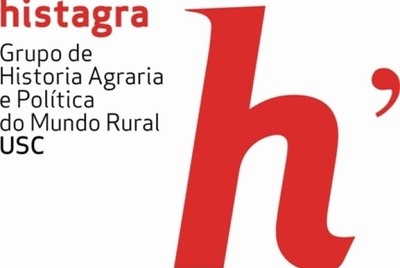RHN 141/2013 | Call
Workers of the World.International Journal on Strikes and Social Conflicts
Guest editor: HISTAGRA Research Group, USC (HISTAGRA members acting as editors for this special issue are Lourenzo Fernández-Prieto, Daniel Lanero, Miguel Cabo, Ana Cabana, Antonio Míguez)
Deadline: 15 January 2014
Special issue
Conflictiveness in the contemporary rural world:
new perspectives on an old problem
This worldwide call for papers concerns a special issue of the journal Workers of the World (http://www.workeroftheworldjournal.net/) that will be dedicated to the topic of Conflictiveness in the contemporary rural world: new perspectives on an old problem. It is open to doctoral students and independent or institutionally associated researchers.
Papers can be submitted in the English, French, Spanish, Portuguese and Italian languages. The articles chosen for this issue will be published in English and the authors themselves will be responsible for translation within two months of acceptance for publication.
About the special issue: Conflictiveness in the rural world
This issue of Workers of the World seeks to apply new methodological or thematic approaches in order to re-think conflictiveness in the contemporary rural world, by examining issues among land workers: peasants, day labourers, tenants, farmers, etc.
Peasant conflicts were at the root of the crises of the Ancien Regime and liberal revolutions. The struggle for land activated great mobilizations and conflicts in liberal and authoritarian systems, in the pursuit of agrarian reform (Mexico, 1911; Russia, 1917; Spain 1936; Portugal, 1974). Outcomes included the independence of Ireland and Finland, and the emergence of new Central European nations following World War I. After 1945, peasant conflicts led to decolonization and revolution in several Asian, American and African countries, as well as the emergence of Peasant Studies as an area of social science.
This conflictiveness has not disappeared; it persists in the world today and has surfaced in environmental or identity spheres. Re-examination is needed in order to discover differences and similarities with respect to the past and the present: between peasants and farmers, owners and day labourers, pluri-active peasants and part-time farmers, and among the various intermediate groups in rural societies.
It should be noted that a contemporary approach does not exclude re- visiting peasant conflictiveness in medieval or ancient times using present-day perspectives. Contributions along these lines are also of interest.
Selection of papers for inclusion in this issue will give global priority to the following:
- Historiographic, methodological and conceptual aspects of peasants in conflict, peasants as historical subjects, or day labourers, peasants and farmers facing internal and external conflict. Orientative themes might include the primitive rebels of E. Hobsbawm, the peasant studies of T. Shanin, the weapons of the weak of J. Scott or even the peasant-urban workers of E. P. Thompson.
- Environmental and production conflictiveness regarding the use of productive resources or socio-environmental conflicts in the historical construction of agro-ecosystems. Recent environmental history and agro-ecology provide novel perspectives.
- Property, ownership and the struggle for land, with special attention to communal goods; which is a classical theme in British and French historiography.
- Opposing identities, whether cultural, social, technological or rural-urban. R. Williams is a good point of reference in this area.
- Peasants, farmers and contemporary political conflict: liberalism, socialism, fascism and democracy. Debates launched by B. Moore, T. Skocpol and others should be re-visited in this area.
- Migration and agrarian conflictiveness: how migrating farmers and peasants export or develop new forms of conflictiveness; or how returning farmers or peasants import or develop new forms of conflictiveness.
In sum, a variety of conflicts in time and space can be observed from different perspectives and it would be advisable, though not essential, to include a dialogue with the social sciences that addresses collective action (resource mobilization theories, political opportunity frameworks or structures...).
Rather than abstractly addressing methodological and theoretical questions, and regardless of the particular topic of research, papers should present empirical research on conflictiveness in the rural world, extract innovative theoretical or methodological conclusions and contrast them with other approaches.
Timeline
- 1 September, 2013 – 15 January, 2014: Submission of papers by authors.
- 15 – 31 January, 2014: Selection of texts by journal editors
- 1 February – 15 March, 2014: Evaluation process
- 15 March 2014: Notification sent to authors of papers selected for publication.
- 15 March – 15 May, 2014: Submission of final article, in English, by the authors
- 15 May – 15 June, 2014: Final revision by editors
- 15 – 30 June, 2014: Issue design and final formatting
- 30 June, 2014. On-line publication of special issue
Articles will not be accepted after the dates indicated.
Submission of papers
All papers should be submitted online to histagra@usc.es with a CC to workersoftheworld2012@yahoo.co.uk.
Articles can be submitted in English, French, Spanish, Portuguese or Italian. All selected works will be published in English, and the authors will be responsible for translation within two months following approval for publication.
The final version in English should not exceed 5,000 words (including notes and spaces) and should be submitted in Times New Roman 12 font with 1.5 line spacing. For questions regarding format and publishing, see
http://www.workeroftheworldjournal.net/index.php/autor-guidelines/english-version
Selection and evaluation
Twenty papers will be selected initially by the editors of this special issue, based on the parameters described in this document. Each of the twenty papers will then be anonymously revised by two referees. The director will select twelve texts for publication, based on the referees’ comments. For further information, contact HISTAGRA at histagra@usc.es.
